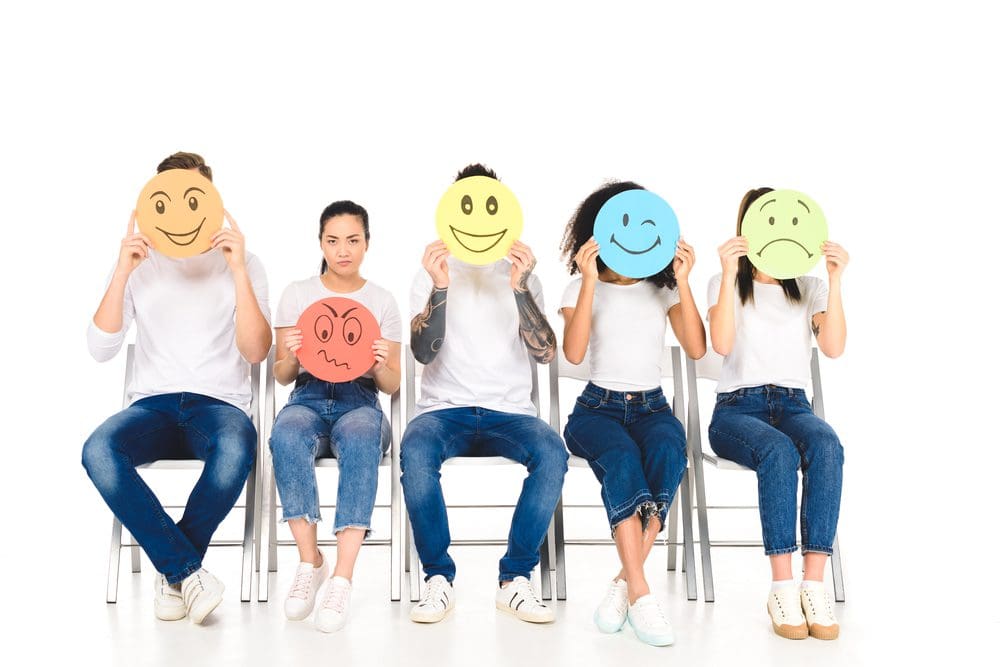Full Disclosure: Clicking on these links could mean a tiny commission for me, at no extra cost to you.
Have you ever felt like your heart was pounding out of your chest during a conversation, or perhaps you found yourself sweating over the thought of speaking up in a meeting? If these scenarios sound familiar, you might be dealing with social anxiety. It’s a common issue that many wrestle with, but often, it remains misunderstood. Social anxiety disorder goes beyond typical nervousness; it can be an overwhelming fear of social situations which can significantly impede everyday interactions and quality of life. In this article, we’ll peel back the layers of social anxiety, exploring the root causes, pinpointing the symptoms, and discussing the variety of treatment options that can lead to a more confident and fulfilling life. Whether you’re looking to help yourself or support someone you care about, understanding social anxiety is the first step towards empowerment and recovery.
Advertisement
Feeling Stuck or Overwhelmed?
You don’t have to navigate it alone. With BetterHelp, you can connect with a licensed therapist who gets it, all from the comfort of your own space.
It’s flexible, private, and designed to fit into your life. Get matched in minutes and start feeling supported, whether you're managing anxiety, stress, or just trying to find your footing again. Plans start at $65/week. No waiting rooms. No judgment. Just real help, when you need it.
What is Social Anxiety?
Social anxiety, also known as social anxiety disorder or social phobia, is a psychological condition characterized by intense fear, anxiety, and avoidance of social situations where one might be judged or scrutinized by others. This fear can be so overwhelming that it may interfere with daily activities, work, and relationships.
People with social anxiety often feel overly anxious about being around other people and have a hard time talking to them, even when they wish they could. They’re typically afraid of being embarrassed, humiliated, rejected, or offending others. This fear might be specific to certain social situations, such as speaking in public or attending social gatherings, or it could be more generalized to almost all social interactions.
Causes of Social Anxiety
Signs of Social Anxiety
Social anxiety disorder manifests in a variety of symptoms that can significantly impact an individual’s day-to-day activities. These symptoms can be broadly categorized into three groups: physical, cognitive, and behavioral. Recognizing these signs can be the first step toward seeking help and managing the disorder. Here’s a breakdown of the key symptoms associated with social anxiety:
Physical Symptoms
- Blushing
- Sweating
- Trembling
- Rapid Heartbeat
- Muscle Tension
- Stomach Trouble
- Dizziness or Lightheadedness
Cognitive Symptoms
- Excessive Worrying
- Fear of Judgement
- Self-consciousness
- Rumination
Behavioral Symptoms
- Avoidance of Social Situations
- Escape from Social Situations
- Need for a Safety Net
- Difficulty Making Eye Contact
- Speaking Softly or Quickly
Impact of Social Anxiety on Life
Advertisement
⚡ Access Treatment Right Now
→ Online Therapy – Talk to a licensed therapist today through BetterHelp. Affordable, private, and convenient therapy starting at $65/week. Take the Free Assessment to get matched now.
→ Digital Psychiatry – Connect with a provider in 12–48 hours via Hims/Hers. Explore FDA-approved medication options — no insurance required. Get Started Today.
Treatment Options for Social Anxiety
Social anxiety disorder, while challenging, is a highly treatable condition. Many individuals find relief through a combination of therapies, lifestyle adjustments, and sometimes medication. Here’s a detailed look at the various treatment options available to manage and overcome social anxiety:
Cognitive-Behavioral Therapy (CBT)
- Best for Availability → BetterHelp
- Best for Couples → ReGain
- Best for Psychiatry → Hims/Hers
- Best for Teens → Teen Counseling
- Best for Anxiety and Depression → Brightside
- Best for LGBTQIA+ → Pride Counseling
CBT is one of the most effective treatments for social anxiety. It involves identifying and challenging the negative thoughts and behaviors that contribute to anxiety. CBT also includes exposure therapy, where individuals gradually and systematically confront their fears in a controlled environment, helping them gain confidence over time.
Participating in group therapy can also be particularly beneficial for those with social anxiety, as it provides a supportive environment to practice social skills and exposure techniques among peers who understand their struggles.
Medications
SSRIs are commonly prescribed medications for social anxiety. They help increase the levels of serotonin in the brain, which can improve mood and reduce anxiety. Common SSRIs include sertraline (Zoloft), paroxetine (Paxil), and fluoxetine (Prozac). Another option for anxiety medication is Serotonin-Norepinephrine Reuptake Inhibitors (SNRIs). Like SSRIs, SNRIs increase serotonin and norepinephrine levels in the brain and are used for treating social anxiety. Examples include venlafaxine (Effexor) and duloxetine (Cymbalta).
Benzodiazepines are sedative medications that can help relieve anxiety symptoms quickly. However, due to their potential for dependence, they are generally prescribed only for short-term use in specific anxiety-provoking situations, not as a long-term treatment option.









